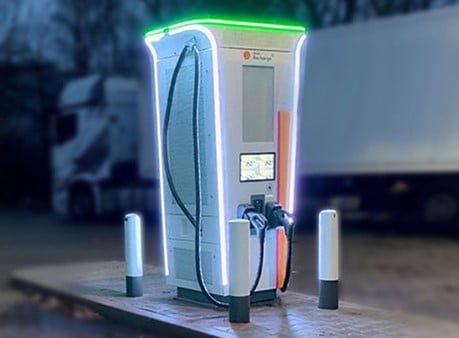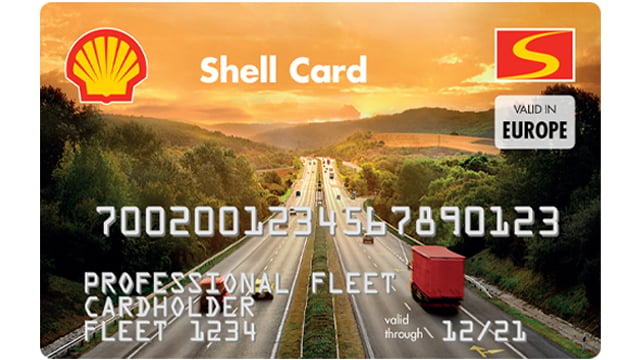Advertisement feature from Shell Commercial Road Transport
 Efforts to decarbonise heavy-duty road transport are picking up pace. Only last year, the UK government unveiled a £200 million programme designed to develop zero-emission fleets over the next three years.1 Time is of the essence, however, with recent research by Imperial College London suggesting that fleet operators should be running new vehicle trials by 2025 – with a view to driving low-carbon options and replacing their remaining heavy-duty fleet by 2035.2
Efforts to decarbonise heavy-duty road transport are picking up pace. Only last year, the UK government unveiled a £200 million programme designed to develop zero-emission fleets over the next three years.1 Time is of the essence, however, with recent research by Imperial College London suggesting that fleet operators should be running new vehicle trials by 2025 – with a view to driving low-carbon options and replacing their remaining heavy-duty fleet by 2035.2
As pressure mounts from industry and partners, how can data and taking a more analytical approach help fleet operators to meet their decarbonisation goals?
Use data to shape your decarbonisation journey
A key challenge in the decarbonisation journey is that it’s not always obvious what steps need to be taken based on your specific business needs. Thankfully, using data and analysing your fleet operations can help you build a picture of your unique decarbonisation strategy.
Taking an analytical approach lets you determine whether you can replace your current ICE vehicles for EVs based on data around driver routes and driving patterns. You can factor in considerations such as where your depots are based geographically, which routes you take most often domestically or internationally, and your vehicle charging needs based on time spent at the depot.
This process can help you spark mindset shifts in your organisation, for example around range anxiety. Further down the line, analysing your operations could mean discovering your trucks need less fuel or battery power in a day or a week than you expected – or that you only need to charge overnight rather than during the day. That information could potentially open up options such as adopting lower speed charging infrastructure for your EV fleets.
The more data sources you can leverage effectively, the more opportunities you can find to help you reach your net-zero targets. While you look to reduce your emissions and/or support your drivers, a combination of fuel cards, like the Shell Card, and data from fleet management products, such as Shell Telematics, can help you analyse your drivers’ routes and identify opportunities to decarbonise. For instance, optimising drivers’ routes by mapping out refuelling or recharging stations helps to reduce unnecessary mileage, cut down on emissions, save battery power and get drivers to destinations on time.
Help your fleet power progress at every turn
 Heavy-duty road transport fleets need to choose the right partner as they strive to meet their decarbonisation goals. As well as helping you form a tailored plan backed by data, consultants can provide a wealth of knowledge and tools at each stage of the decarbonisation journey.
Heavy-duty road transport fleets need to choose the right partner as they strive to meet their decarbonisation goals. As well as helping you form a tailored plan backed by data, consultants can provide a wealth of knowledge and tools at each stage of the decarbonisation journey.
At Shell, we can be your partner for change. Working closely with our customers and partners to power progress across sectors, we have the expertise, experience and scale to help your fleet power progress at every turn.
Discover more about how our specialist solutions and consultancy services can drive your decarbonisation journey: https://www.shell.co.uk/business-customers/commercial-road-transport.html

Sources
1. UK Government. “£200 million boost to rollout of hundreds more zero-emission HGVs.” 2022.
2. Imperial College London. “Urgent action is needed for heavy transport to meet net zero targets.” 2022.












Login to comment
Comments
No comments have been made yet.